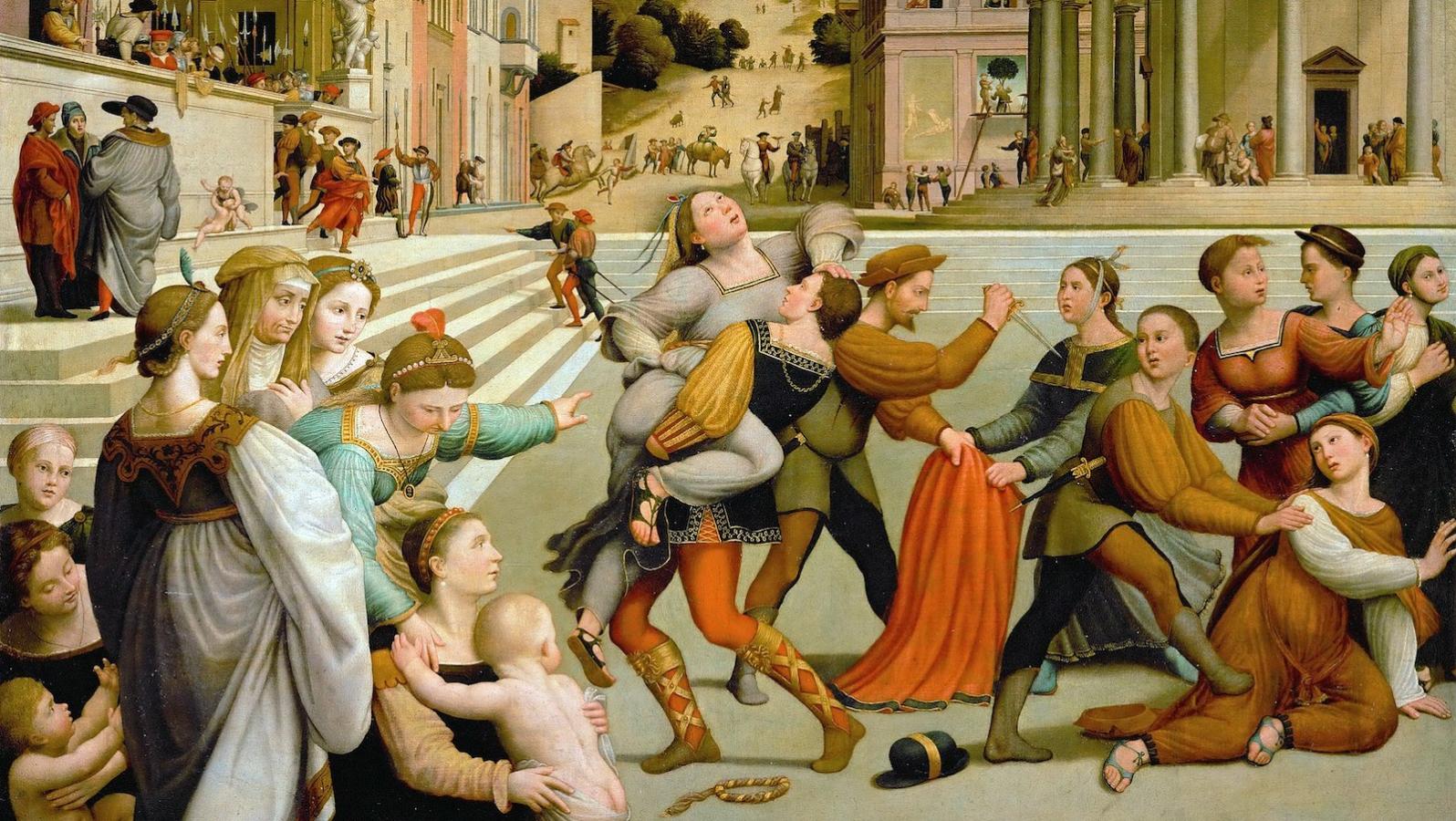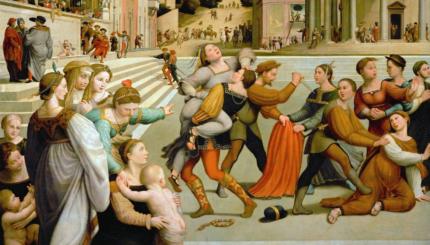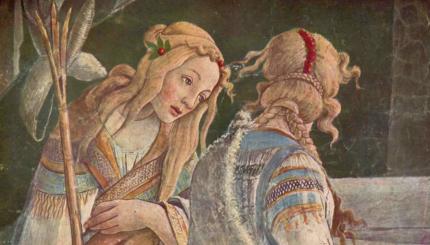Commentary on Parashat Vayishlach, Genesis 32:4-36:43
After 20 years, Jacob is coming home. Anticipating that the reunion with the brother he cheated all those years ago will be disastrous, he sends messengers laden with presents ahead to his brother.
But just to be on the safe side, he divides his camp in order to minimize the losses should he come under attack. The story continues: “That same night, he got up, took his two wives, his two maidservants, and his 11 children, and crossed at a ford of the Jabbok [river]. … Jacob was left alone, and a man wrestled with him” (32:23-25). The nocturnal wrestler wounds and blesses him and gives him a new name–our name: Yisrael, one who wrestles with God. Jacob’s wrestling with God is a powerful image and legacy. We never know with whom Jacob is wrestling: is it himself, his conscience, his brother, God, or all of these parts of himself and of his life? Jacob names the place “Peniel,” meaning “Face of God,” for, as he states, “I have seen God face-to-face” (32:31). Somehow, alone, separated from his “two wives” and his “eleven children,” Jacob discovers the face of God in his adversary — and Jacob is blessed.
Eleven children cross the river? But Jacob already at this point has 12 children. What about Dinah, his daughter? What happened to her? Rashi, quoting a midrash, explains: “He placed her in a chest and locked her in.” While many commentaries understand that by locking Dinah in a box Jacob intends to protect her from marrying his brother Esau, we know the truth of the story. Hiding Dinah — locking her up — is a powerful image about silencing women. And that silence echoes loudly through the rest of the .
What happens next? Dinah gets an ultimate act of silencing: The commentaries understand Dinah’s rape as Jacob’s punishment for withholding her from Esau. Dinah’s rape is Jacob’s punishment? What about Dinah? What has she done? How does she feel? Out text is silent. We only know what her brothers and father think: that she has been defiled (34:5-7), that she must not be treated as a whore (34:31). No one in the Torah or the midrashic accounts asks her what she wants, what she needs, or how she can be comforted.

Help us keep Jewish knowledge accessible to millions of people around the world.
Your donation to My Jewish Learning fuels endless journeys of Jewish discovery. With your help, My Jewish Learning can continue to provide nonstop opportunities for learning, connection and growth.
Her silence is loud enough to reverberate through the generations. We hear it in the reports of other fathers who perceive their daughter’s rape as their dishonor, their punishment. Fortunately for Dinah, in Genesis the blame and punishment fall entirely on the perpetrator and his people, not on her. Other women are not as lucky. In 1998, in Pakistan, Arbab Khatoon was raped by three men in a village in Jacobabad district. She was murdered seven hours later. According to local residents, she was killed by her relatives for bringing dishonour to the family by going to the police. In 1999, Lal Jamilla Mandokhel, a 16-year-old girl with an intellectual disability, was reportedly raped several times by a junior clerk of the local government department of agriculture in a hotel in Parachinar, Pakistan. The girl’s uncle filed a complaint about the incident with police–who took the accused into protective custody but then handed over the girl to her tribe. The elders decided that she had brought shame to her tribe and that the honor could only be restored by her death; she was killed in front of a tribal gathering.
Similar stories are reported not only in Pakistan but also in Bangladesh, Great Britain, Brazil, Ecuador, Egypt, India, Israel, Italy, Jordan, Pakistan, Morocco, Sweden, Turkey, Uganda —as well as Afghanistan, Iraq, and Iran. No wonder women are silent!
This outrage is only part of a much larger problem of violence against women. For example, according to the United Nations Children’s Fund (UNICEF), more than 5,000 brides die annually in India because their dowries are considered insufficient. Widney Brown, advocacy director for Human Rights Watch, says that “in countries where Islam is practiced, they’re called honor killings, but dowry deaths and so-called crimes of passion have a similar dynamic in that the women are killed by male family members and the crimes are perceived as excusable or understandable.”
The practice, she said, “goes across cultures and across religions.” In the few cases when public outcry around the world and international pressure were used, a woman’s life was spared. But stories that capture the headlines do not begin to address the scope and range of the problem.
Another form that violence takes is sexual slavery and human trafficking, which even happens in Israel. According to a recent report, thousands of women are illegally smuggled into Israel and sold into sexual slavery. These young women — typically in their early 20s — are raped, abused, incarcerated and threatened, “servicing” 15-25 clients over 14-18 hours a day, seven days a week. The women become indentured slaves with an ever-growing debt to their owners. Israeli men from all walks of life pay approximately a million visits to brothels per month and the profits from this illicit activity are estimated at $750 million annually.
Sexual slavery and human trafficking remain a global problem, taking place in nearly every corner of the world. It is estimated that 600,000-800,000 people–mostly women and children–are trafficked across borders worldwide every year. (For ways to get information–and to get involved in this issue — contact the Task Force on Human Trafficking through its website.)
We hear Dinah’s silence as well in the challenges to reproductive rights happening right now in the United States.
What happens to Dinah in the aftermath of ordeal? We do not know. We never hear from her, as we may never hear from the women and our generation who are victims of violence and whose voices are not heard. But the legacy of Jacob as the one who wrestles, demands that we confront the shadowy parts of ourselves and our world — and not passively ignore these facts. The feminist educator Nelle Morton urged women to hear each other’s speech. Dinah’s story challenges us to go even further and be also the voices for all of our sisters.
Reprinted with permission from The Torah: A Women’s Commentary, edited by Tamara Cohn Eskenazi and Andrea L. Weiss (New York: URJ Press and Women of Reform Judaism, 2008).



